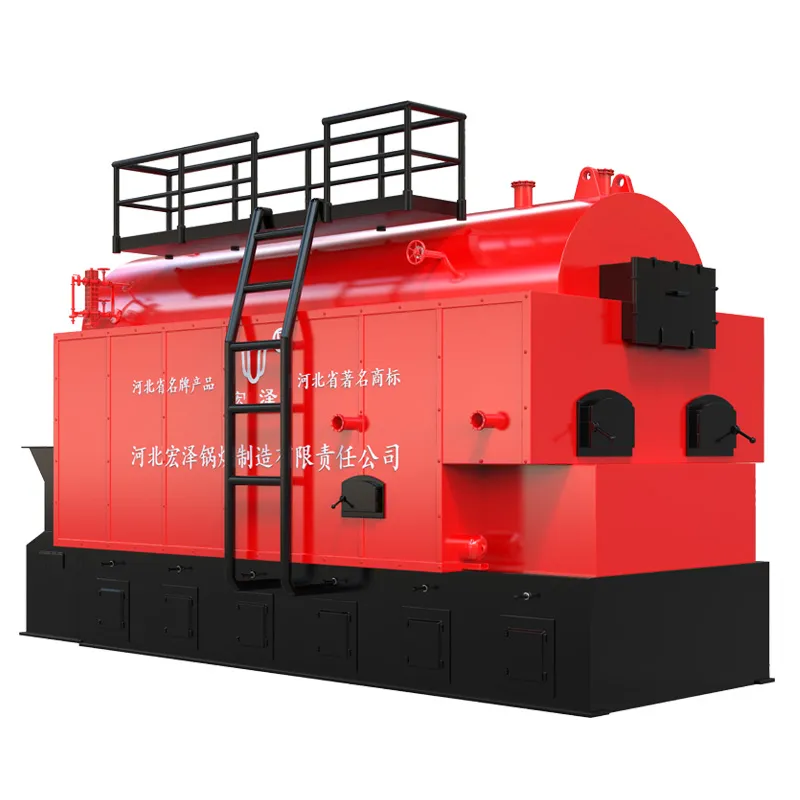
Nov . 17, 2024 16:16 Back to list
thermal oil boiler design
Thermal Oil Boiler Design Key Considerations and Benefits
Thermal oil boilers have become increasingly popular in various industrial applications due to their efficiency, versatility, and ability to provide high-temperature heat transfer fluid for a range of processes. Unlike traditional water-based systems, thermal oil systems use oil as the heat transfer medium, which can operate at higher temperatures without the risk of boiling. This article discusses the fundamental design considerations for thermal oil boilers, as well as their key benefits.
Understanding the Thermal Oil System
Before diving into the design aspects, it is essential to comprehend the basic function of a thermal oil boiler. Essentially, these boilers heat thermal oil, which is then circulated through a system to provide heat to equipment or processes. The oil remains in a liquid state, even at high temperatures, which allows for safe and efficient energy transfer.
Key Design Considerations
1. Heat Transfer Fluid Selection The choice of thermal oil is critical for optimal performance. Factors such as temperature range, thermal stability, and viscosity should be considered. Common oils used in thermal systems include mineral oil, synthetic oil, and bio-based oils. Each type has its own benefits and limitations in terms of thermal properties and safety.
2. Temperature Control Effective temperature control is crucial to ensure efficient operation and prevent overheating. The boiler design must include robust temperature regulation systems, such as PID controllers, that can monitor and adjust the temperature with precision. Safety features like high-temperature limit switches are also vital to avoid hazardous conditions.
3. Pressure Management Although thermal oil systems operate at lower pressures than steam systems, pressure management is still essential. The boiler design must accommodate the thermal oil's expansion and potential vapor formation under varying temperature conditions. Installing appropriate pressure relief valves and monitoring systems can enhance safety and reliability.
4. Insulation and Heat Loss Minimization Insulating the boiler and associated piping is key to minimizing heat loss. The design should incorporate high-quality insulating materials that can withstand elevated temperatures and reduce energy consumption. This not only improves efficiency but also contributes to cost savings over time.
thermal oil boiler design

5. Fouling and Maintenance Considerations The thermal oil system should be designed with ease of maintenance in mind. Regular monitoring for fouling or degradation of the thermal oil is necessary, as impurities can hinder performance. Easy access for cleaning and oil replacement should be factored into the design.
6. System Layout and Piping Design A well-thought-out system layout and piping design can enhance the overall efficiency and performance of the thermal oil boiler. The flow path should minimize pressure drops and allow for even heat distribution. Additionally, minimizing bends and using appropriate pipe sizes can improve fluid circulation.
Benefits of Thermal Oil Boilers
1. High Efficiency Thermal oil boilers typically operate at higher efficiencies compared to traditional steam boilers. Their ability to provide consistent high temperatures with controlled heat transfer results in optimized process performance.
2. Versatility These boilers can be utilized in various industries, including chemical processing, food processing, and manufacturing. Their adaptability makes them suitable for diverse heating applications.
3. Safety The lower operating pressures and non-corrosive nature of thermal oils make these systems safer than high-pressure steam boilers. Properly designed thermal oil systems can greatly reduce the risk of accidents.
4. Energy Savings Over time, the energy savings achieved through efficient thermal oil systems can significantly lower operational costs. The minimized heat loss and precise temperature control contribute to reduced energy consumption.
Conclusion
In conclusion, the design of thermal oil boilers requires careful consideration of multiple factors, including heat transfer fluid selection, temperature control, and system maintenance. With numerous benefits such as high efficiency, safety, and versatility, thermal oil boilers remain an attractive option for various industrial heating applications. As industries continue to focus on energy efficiency and cost-effectiveness, the demand for well-designed thermal oil boilers is expected to grow.
-
High-Efficiency Commercial Oil Fired Steam Boiler for Industry
NewsJul.30,2025
-
High-Efficiency Biomass Fired Thermal Oil Boiler Solutions
NewsJul.30,2025
-
High Efficiency Gas Fired Thermal Oil Boiler for Industrial Heating
NewsJul.29,2025
-
High-Efficiency Gas Fired Hot Water Boiler for Sale – Reliable & Affordable
NewsJul.29,2025
-
High Efficiency Biomass Fired Hot Water Boiler for Industrial and Commercial Use
NewsJul.29,2025
-
High-Efficiency Biomass Fired Hot Water Boiler for Industrial Use
NewsJul.28,2025
Related PRODUCTS






















